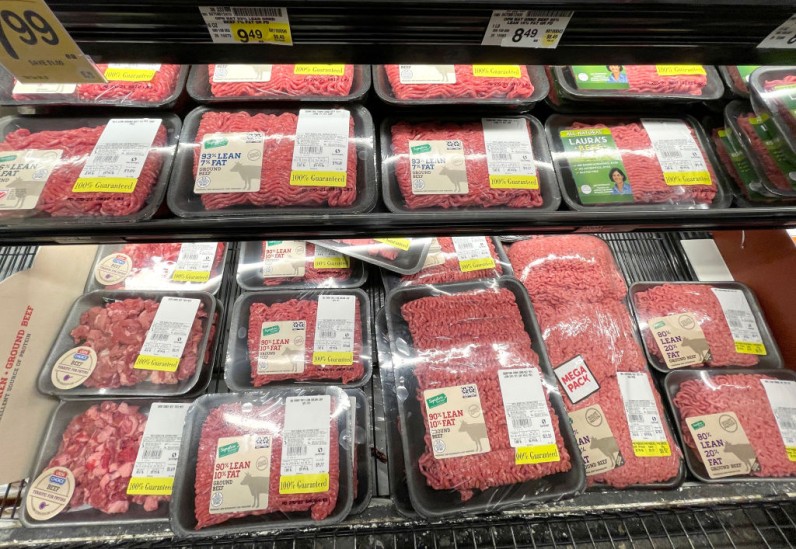
The federal government is contacting stores in the United States where bird flu has been reported in dairy cows to collect ground beef samples for testing. Nevertheless, the administration is convinced that the meat supply is secure, they said on Monday, April 29.
H5N1 Virus in 34 Dairy Cattle Herds Confirmed
Following the confirmation of the H5N1 virus in 34 dairy cattle herds across nine states since late March, along with one person in Texas, federal authorities aim to ensure the safety of milk and meat.
An outbreak case was identified in a farm worker from Texas who had conjunctivitis after coming into contact with dairy cows.
According to the World Health Organization (WHO) and the US Centers for Disease Control and Prevention (CDC), exposure to infected animals increases the danger. However, the risk to the general population is modest.
Read also: H5N1 Strain: Bird Flu Outbreak Blamed on Dairy Farms; USDA Confirms Cow-to-Cow Transmission
USDA to Examine Store-Sold Ground Beef Samples Using PCR Testing
In a report by Reuters, a statement from the US Department of Agriculture (USDA) said they would do two further safety studies and evaluate ground beef samples sold in stores using PCR testing to determine the presence or absence of viral particles. After their milking days, some dairy cows are turned into meat.
On Monday, the USDA started requiring pregnant dairy cows to test negative for the virus before being transported over state boundaries to control the spread of the bird flu virus.
The government clarified that testing was unnecessary this past weekend for cows sold in barns and transported straight to slaughterhouses across state boundaries. All that is required is proof that a veterinarian checked the animals. According to the USDA, every animal is inspected before and after being slaughtered before being given to humans.
As stated in the release, the USDA is further testing slaughterhouses for virus particles in beef muscle samples from rejected dairy animals. The USDA has announced that all samples tested positive for PCR, whether from retail or slaughter and will be checked for live viruses.







Join the Conversation